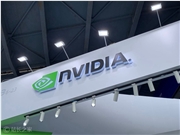NVIDIA's CEO, Jensen Huang, recently spoke with the Financial Times, stating that despite encountering some issues with the production of new-generation AI processors, the company's plans remain unaffected.
He emphasized that although the highly anticipated Blackwell new chip platform has been delayed, NVIDIA will still strive to achieve its goal of launching a new flagship product annually. As early as October last year, Huang had announced this ambitious plan, aiming to accelerate the pace of product launches from every two years to every year.

However, recent technical issues at the last minute with partner TSMC have caused the full launch of Blackwell to be postponed to the end of this year. This delay has sparked investor concerns about NVIDIA's growth rate and profit margins, leading to a drop in the company's stock on Thursday.
Despite this, Huang stated that the development of the next two generations of products is still on schedule. "Our engineers are working diligently on the development of the next two generations of chips, and they will certainly complete them within this annual cycle."
NVIDIA's acceleration of innovation is primarily to maintain a leading position in the increasingly competitive market. Companies like Meta and OpenAI rely on NVIDIA's GPUs to train large language models, and the demand for such products has long exceeded supply.
In response to analysts' questions about how customers profit from massive AI infrastructure investments, Huang revealed that NVIDIA itself is using AI to accelerate data processing and product design, enhancing productivity. "We cannot design our chips without generative AI," he said, "Our engineers' efficiency has greatly improved with the help of AI."
Regarding the production issues with Blackwell, Huang explained that they are mainly related to the "masks" used in the chip design printing process. Necessary adjustments were made to improve the manufacturing yield of Blackwell. "The mask changes have been completed, with no functional changes," he said, adding that Blackwell will begin mass production and customer deliveries in the fourth quarter of the fiscal year ending January 2025.
Although the company expects a decrease in profit margins in the coming months, NVIDIA's financial chief stated that these changes will not affect the overall demand trend.
Some Wall Street analysts have started to lower their expectations for NVIDIA's gross margin, while Matthew Ramsay pointed out that the challenge of mimicking the iPhone's annual release cycle is significant, but this does not reflect a change in the overall demand for AI computing solutions.
Key Points:
💡 NVIDIA CEO Jensen Huang insists on the plan to launch a new flagship AI chip annually, despite production delays.
📉 Due to production issues with the Blackwell chip, NVIDIA's stock price has fallen, and investors are concerned about future growth.
🔍 NVIDIA is leveraging AI technology to enhance productivity, and future product development is still on track, with no change in the overall demand trend.










